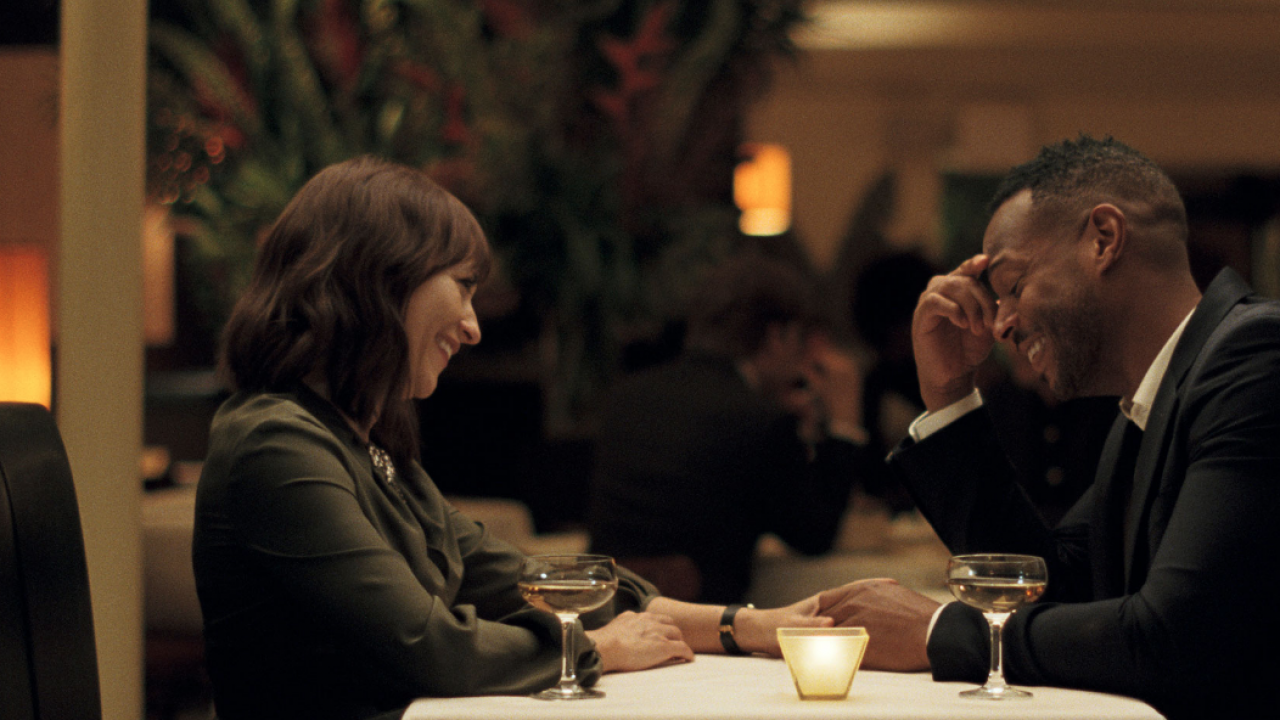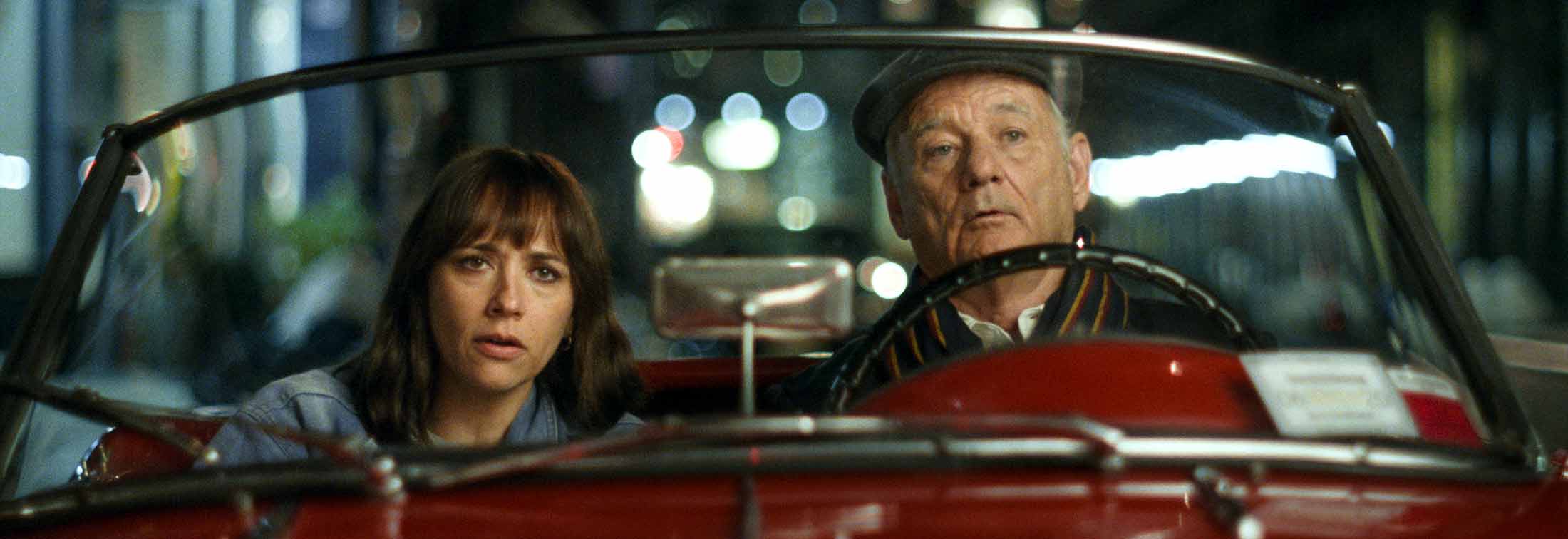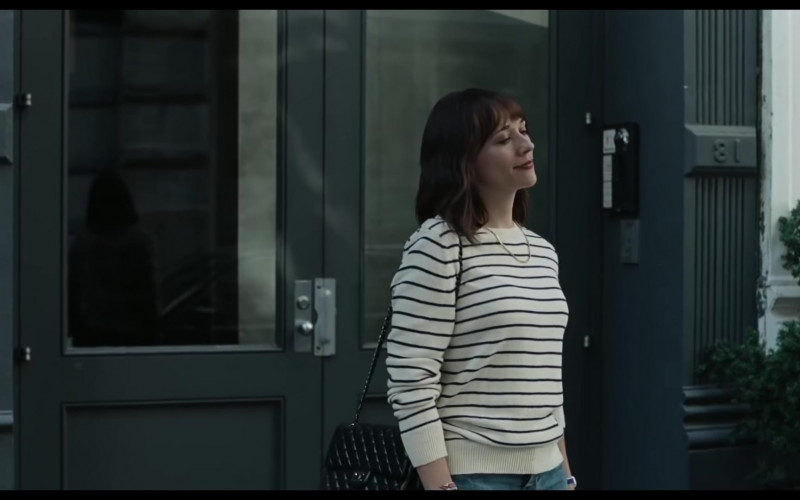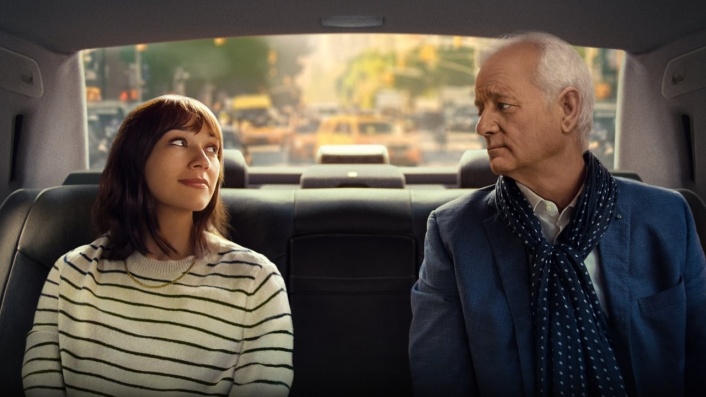Laura (Rashida Jones) is a wife and mother who has reached the point in her marriage where she still has intercourse, but she no longer … does the more animalistic version of that act, encapsulated in a choice four-letter word. This realisation is delivered to her in a stand-up act she watches on TV from comedian Chris Rock, which causes her to laugh and smile wanly – though not with any apparent regret.
The story may not be the same for her husband, Dean (Marlon Wayans). Laura is starting to unwittingly compile evidence that Dean may be cheating on her, and instead of confronting him about it, she stumbles into becoming something of an amateur sleuth. Unfortunately, the only person she has to sleuth with is her father, Felix (Bill Murray), a fun-loving, charming lothario of a man who eggs her on with a sort of barely contained glee. “Can you not be so excited?” she asks Felix. “This is my life we’re talking about, and it may be falling apart.”
The problem with Sofia Coppola’s On the Rocks is that it’s too excited about Laura’s life possibly falling apart. Coppola knows and has worked with a lot of really cool people over the course of her career, Murray chief among them, so it’s understandable she would want to make a movie where we hang out with some of them. It’s the wrong role for Murray though. Not only does he not seem like Jones’ father – they don’t have chemistry, or feel like they share a history – but you don’t really believe this man would chortle his way through the very serious issue of whether his daughter’s husband is cheating on her, which might have a major impact on his own grandchildren.
For Murray, this role seems a bit like a night at the Improv. He sings on multiple occasions. He produces comical factoids that are only tangentially related to what they are talking about. Instead of giving Dean the benefit of the doubt, as might be expected of a man hopeful of keeping his daughter’s marriage intact, he yanks any loose thread to see how quickly the whole thing might unravel … and does it with a look of impish mischief. The fact that he destroyed his own marriage by cheating on Laura’s mother is not explanation enough for such behaviour.
It’s not clear why Coppola wanted to make On the Rocks, as it is a bit of a departure from the films she’s made so far. Those films do not all resemble each other in subject matter, but they do have a similar ethereal style. Maybe it’s a sign of a change she’s making as she nears 50 years old and is less likely to ponder ennui, or at least, not with the seriousness she once pondered it. She’s also married with children like her protagonist.
But none of these things really explain the turn toward the broader approach we see here. If Laura is really going to follow her husband around to see if he’s cheating on her, that should be a more solemn sign of defeat – “pathetic,” as Laura describes it at one point. It shouldn’t feature hijinks like Felix careening through the streets of New York in a convertible with engine trouble, following a taxi in the most conspicuous way imaginable.
On the surface, the most obvious corollary for On the Rocks is Coppola’s breakout film, Lost in Translation. That also featured Murray and a much younger co-star, Scarlett Johnansson, who was quite clearly based on the director herself. The mode there was melancholy. The little bits of comedy were doled out judiciously, never upending the tone.
Here, while it’s commendable that Jones is not Murray’s love interest, it also really changes the intended feeling of the movie. Coppola wants to give her characters thoughtful conversations against different backdrops of the city they’re inhabiting – New York rather than Tokyo this time – but has to come up with a plot that will bring a father and daughter together on a number of successive nights, in a number of successive martini bars, in a way similar to her two lost Tokyo travellers. This isn’t it.
The film’s underlying broadness extends to the side characters. The hilarious comic actress Jenny Slate appears here as another mother at the school Laura’s kids attend, and her only function is to yammer on and perform self-absorption. To say she is underutilised is an understatement. Wayans’ role is not comedic in nature, though that’s been the primary mode of his career. But as a dramatic character he is vastly underwritten. His behaviour is blandly absent, generic in its lack of specificity. Even if that should be understood as Laura’s interpretation of his behaviour, it doesn’t make him any less hollow, a dramatic device rather than a character.
Murray turned 70 years old a little more than a week ago, which serves as a symbolic reminder that our days to appreciate his unique comic gifts may be numbered. Any opportunity to see him on screen is one we should cherish, and I’m sure any number of us would love to have him as a dad. On the Rocks does give us some moments to cherish.
But if this movie exists to finish the unfinished business of Lost in Translation – I’m sure you remember as well as I do the anguish on his face when he lost the Oscar – then it’s not going to do the job. This Murray showcase needed to arrive to us in a different form, and from the evidence of On the Rocks, Coppola may not be the director best suited to give it to us.
On the Rocks opens Friday 2 October for a limited engagement at Palace Cinemas (Victoria to follow), and debuts on Apple TV+ on 23 October.



